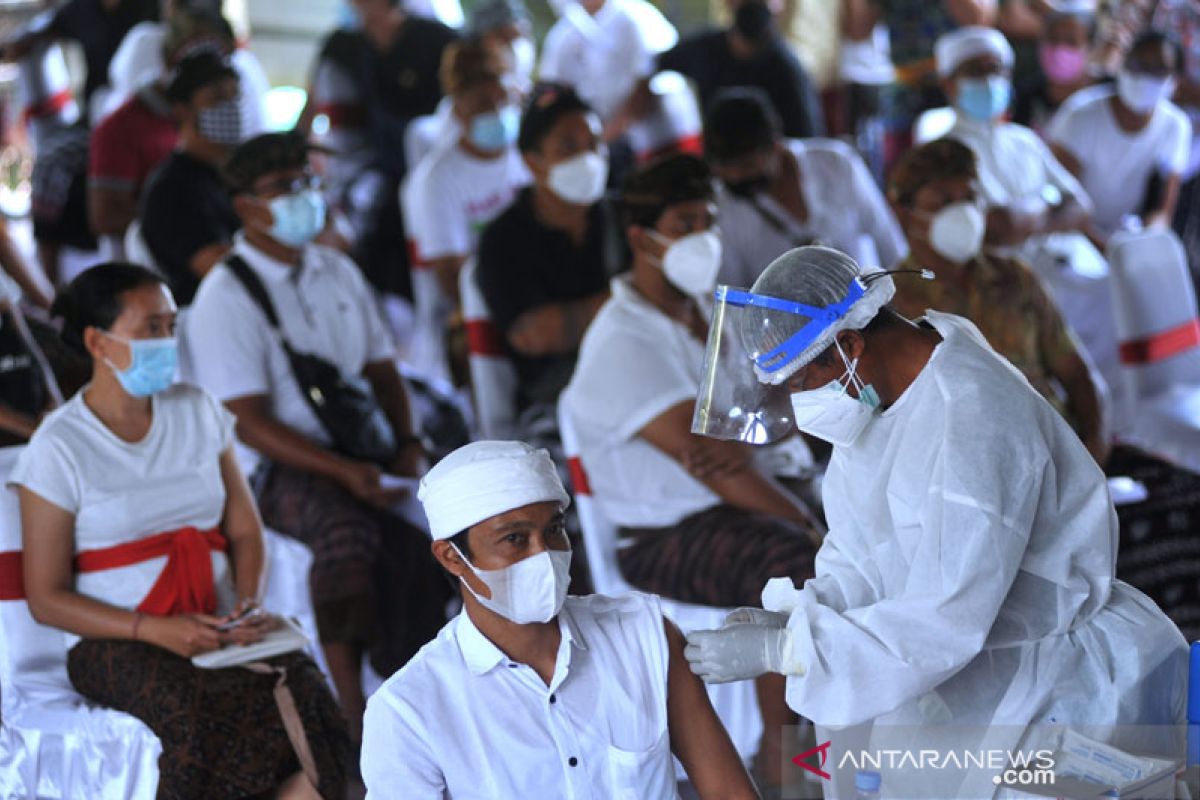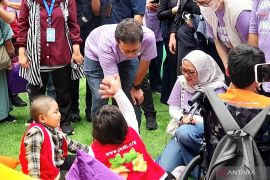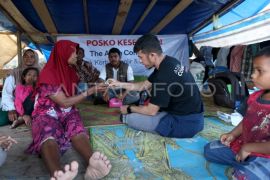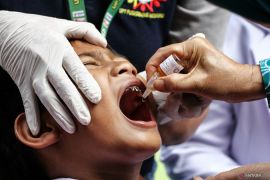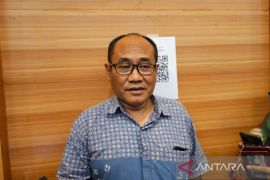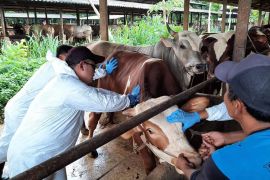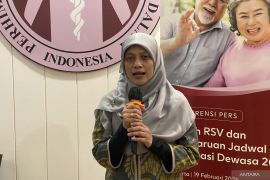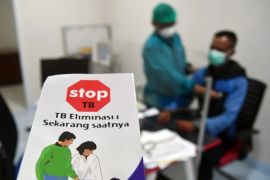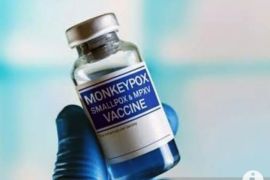"As many as 75 percent of the vaccines will become available starting July (2021). (The vaccination target is) 181.5 million people, and (it means) 363 million doses (of vaccines will need to be administered). (If) divided by 365 days, it (the vaccination target) is one million a day, if the vaccines are available. The vaccines will become available in the second semester, which is a lot. Second semester. My calculation that (we will have to administer) 1.5 million vaccine jabs per day," Sadikin informed the press recently.
The minister urged Indonesians to exercise patience whilst waiting for their turn to get vaccinated. Owing to the current limitations on vaccine supplies, only 24 percent of the population, particularly health workers and senior citizens, are being inoculated, he explained.
Indonesia has so far used vaccines developed by China's Sinovac, which has supplied both ready-to-use and bulk vaccines to be further processed by Bio Farma, Indonesia's state-owned pharmaceutical company.
With the planned arrival of 75 percent of fresh vaccine doses between July and December this year, the government will have no option but to push the program to its maximum capacity during that period.
“For the vaccinations, we plan to buy 426 million doses of vaccines. Of the total, the prices and delivery schedules of 275 million doses have been confirmed,” Sadikin said during a hearing with Commission IX of the House of Representatives on March 15, 2021.
The prices and delivery schedules of the remaining 151 million doses of vaccines are yet to be confirmed as the government is waiting for free vaccines from the COVAX Facility, coordinated by the WHO and the Global Alliance for Vaccines and Immunization (GAVI), he informed.
Indonesia has so far received 11.7 million doses of the AstraZeneca vaccine from the COVAX Facility. Based on the latest information, Indonesia may receive 54 million to 108 million doses of vaccines under the multilateral arrangement.
"If you can get as much as possible for free, then you don't need to buy bilateral vaccines. This is still on the move. We all know that (procurement of) vaccines remains a worldwide struggle," he added.
To administer the vaccines on target, there is a need to increase the vaccination capacity.
As many as 4.7 million Indonesians have received their first vaccine shot as of March 17, 2021, almost two months since the government officially launched the national vaccination program. Meanwhile, 1.8 million people have received their second shot so far.
From January to February this year, Indonesia's vaccination rate was recorded at between 10 thousand and 100 thousand shots per day owing to the limited availability of doses. As more vaccine supplies arrived, about 300 thousand people were administered shots daily, and the pace of vaccinations is expected to increase to 500 thousand a day in April.
The Health Ministry has set a target of inoculating one million people per day, or 25 million people a month, for May and June this year, and further increase it to 1.5 million per day between July and December, 2021.
Meanwhile, Minister of Research and Technology and head of the National Development Planning Agency (Bappenas), Bambang Brodjonegoro, has stressed on the need for innovations encompassing cooperation between the private and public sectors in offering vaccination services and the optimal use of digital technology-based systems.
The minister lauded the involvement of youngsters in prioritizing innovation backed by optimal digital technology to provide better public services, especially in vaccination.
"This is a good example. We are upbeat about the vaccination program running quickly, so that the economic recovery program can also take place more quickly. It is expected to provide relief for all of us. At least, with continued strict implementation of health protocols, we can start conducting economic activities as we did before the pandemic," he stated.
Related news: Government increasing number of COVID-19 vaccines for herd immunity
Brodjonegoro expressed the hope that an increasing number of parties, including the private sector, would become involved in the vaccination program in the country.
Indeed, the government has been preparing a self-funded vaccination program dubbed "Gotong Royong" for private companies, under which they will provide vaccines to employees for free.
To ensure that the Gotong Royong program does not affect the implementation of the national vaccination program, the private sector will use different vaccines than those currently offered by the government, Sadikin informed.
Vaccines from Sinovac, AstraZeneca, Novavax, and Pfizer are being administered under the government's vaccination program. The self-funded vaccination program will use Sinopharm and Moderna vaccines, the minister revealed. They will first have to be approved by the National Food and Drug Control (BPOM), which will issue emergency-use authorization (EUA) and distribution license number.
"In order to not affect the government program, different locations for health service facilities have been determined. The Gotong Royong will use private facilities. But the same database will be used so that we can monitor who has been vaccinated and also the Post-Immunization Influence Incidents (KIPI). Hence, they could be guarded jointly," Sadikin said.
In line with the Health Minister's Regulation (Permenkes) on the Gotong Royong vaccination program, issued on March 5, 2021, the government has tasked PT Bio Farma with vaccine procurement. The company will also coordinate with the Indonesian Chamber of Commerce and Industry (Kadin) in this regard.
"The one that will purchase Gotong Royong vaccines will be Biofarma as a state-owned company. Then Bio Farma can sell them to corporations. And corporations must give them for free to employees and their families. Bio Farma has been deliberately (tasked) to buy these vaccines to ensure that the vaccines are genuine as Bio Farma is already engaged in this field," Sadikin explained.
The Ministry of Health is still waiting for the price and quantity of Moderna and Sinopharm vaccines to be set, based on the agreement between Bio Farma and Kadin. Once the amount and price are agreed on, the Ministry of Health will issue a regulation, he said.
Defriman Djafri, an Andalas University epidemiologist, has expressed the hope that self-funded vaccinations would help accelerate the achievement of herd immunity against the coronavirus in the country.
"This could actually create a domino effect that is expected to accelerate vaccination coverage in order to achieve herd immunity, so we can get out of this prolonged pandemic," Djafri, who is also chairman of the Association of Epidemiologists for West Sumatra province, said.
Ensuring that self-funded vaccines are not completely out of government control would deter the vaccine mafia and use of fake vaccines in future — eventualities the public is worried about, he said.
However, the main challenge to independent vaccinations is how they are perceived in the society, he said. For instance, there is an assumption that paid vaccines are much better than free vaccines, he pointed out.
He said he hoped that the public would understand that self-funded vaccinations are part of efforts to increase and accelerate vaccination coverage.
Indonesia has so far recorded a total of 1,437,283 confirmed COVID-19 cases, 1,266,673 recoveries, and 38,915 deaths.
Related news: President elicits support for vaccine development
Editor: Rahmad Nasution
Copyright © ANTARA 2021
